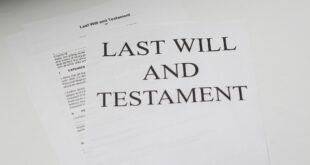Guardian Trust General Counsel Chris Kelly warns the setting up and operation of family trusts can trap the unwary, and as such should not be a do-it-yourself task: poorly-operated trusts and under-informed trustees are proving all too common as trust-related cases come before the courts.
Mr Kelly says the appeal of family trusts endures, with the number of New Zealanders setting up a family trust continuing to rise. The last available statistics from the Reserve Bank indicate that by 2001 nearly half of all couples with a combined income of $200,001 or more had a trust. Fundamentally, he says, trusts serve New Zealand families well if they are set up correctly and run professionally – and if no one is attempting to cheat anyone else.
Legal issues associated with family trusts generally fall into one of two camps: divorce or bankruptcy / insolvency. A core issue upon which the outcomes of both types of cases generally depend is that of perceived versus actual control of the trusts’ assets.
Perhaps not surprisingly, Mr Kelly says several recent cases through the courts have increased concern within the legal fraternity that the relationship property rules, and the law governing when trusts can be overturned, are not working well together.
“A lot of the problem comes down to control, and the issues coming before the court generally relate to the day-to-day operation of family trusts, which is what courts tend to look at.
“One of the ongoing problems associated with family trusts arises from people who, after setting up a trust, fail to change the way they operate. If the trustees don’t seem to be making the decisions on the management of assets, and are regarded by the court – as in a recent case – to be a “puppet” of the settlor (one of the people who set up the trust), the trust will not be perceived as genuine and its assets will not be protected from challenges.”
Trusts need to be genuine, in that assets are transferred so that the control and ownership of those assets is then determined by the trustees according to the rules of the trust. In some recent cases, judges have made comment on family trusts in which couples have controlled and decided the fate of assets and then instructed the trustees – a breach of trust principles. If the court decides they never intended to relinquish the control of what were formerly their assets, the trust may be determined to be a sham, and thus invalid.
“A further issue,” Mr Kelly says, “is that most trustees have little idea of what their legal duties are. The Law Commission is reviewing trustee law, but at present the duties are set out, in a variety of ways and in different terms, in various court decisions and legal text books, and these are not readily accessible to the average private individual who serves as trustee.
“We are going to see more attacks on trusts through both divorce and insolvency, and eventually one will go to the Supreme Court. My advice to people is not to try and do it yourself. There needs to be a clear division of control in terms of both assets and operations, and in this business, you get what you pay for.”
 Mr Kelly heads the Guardian Trust legal team, and has over 30 years' experience as an estates and trusts lawyer. He co-authored the sixth edition of Garrow and Kelly Law of Trusts and Trustees, widely regarded as an authoritative text and regularly cited in New Zealand courts.
Mr Kelly heads the Guardian Trust legal team, and has over 30 years' experience as an estates and trusts lawyer. He co-authored the sixth edition of Garrow and Kelly Law of Trusts and Trustees, widely regarded as an authoritative text and regularly cited in New Zealand courts.








Join the Discussion
Type out your comment here:
You must be logged in to post a comment.